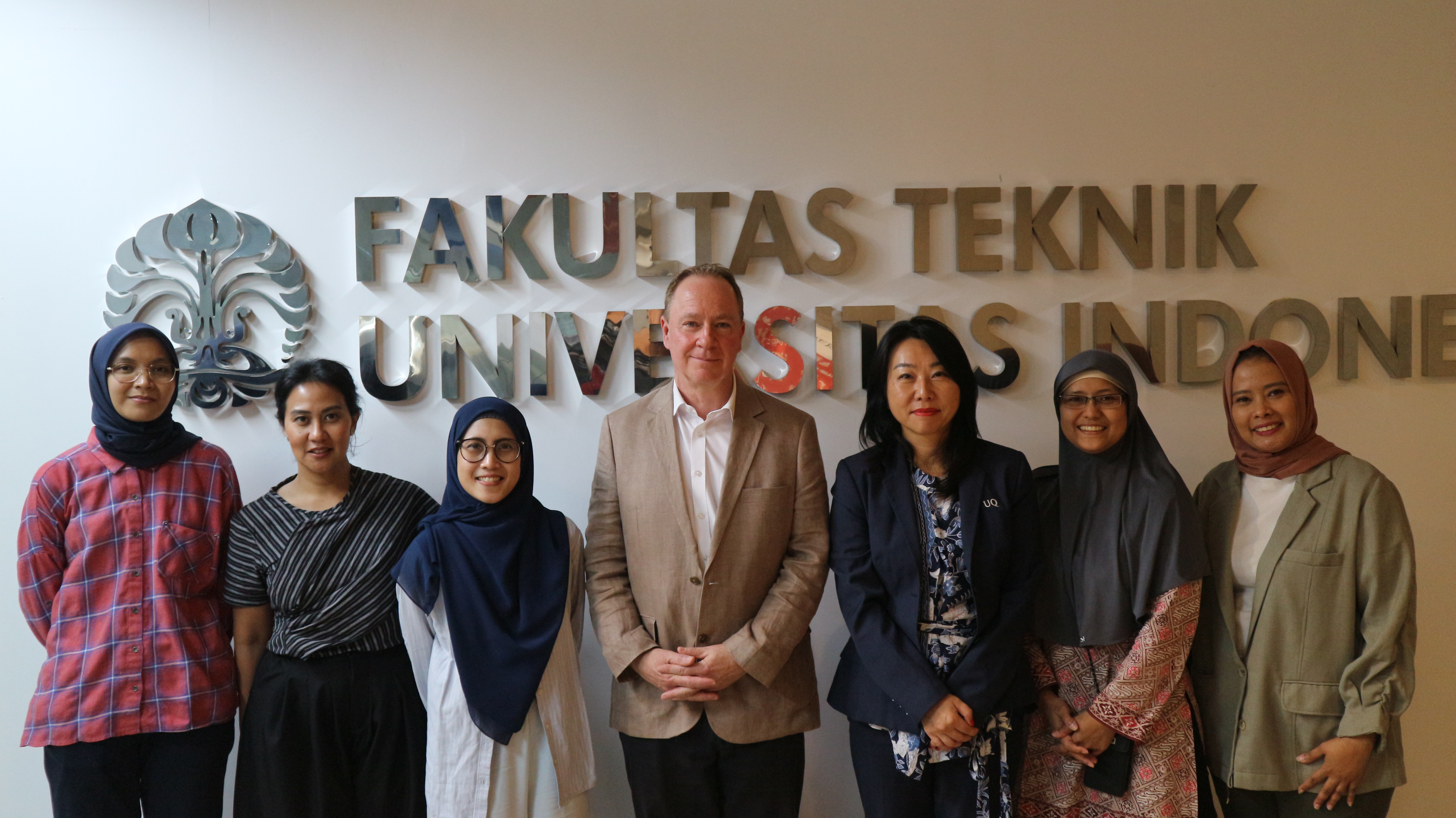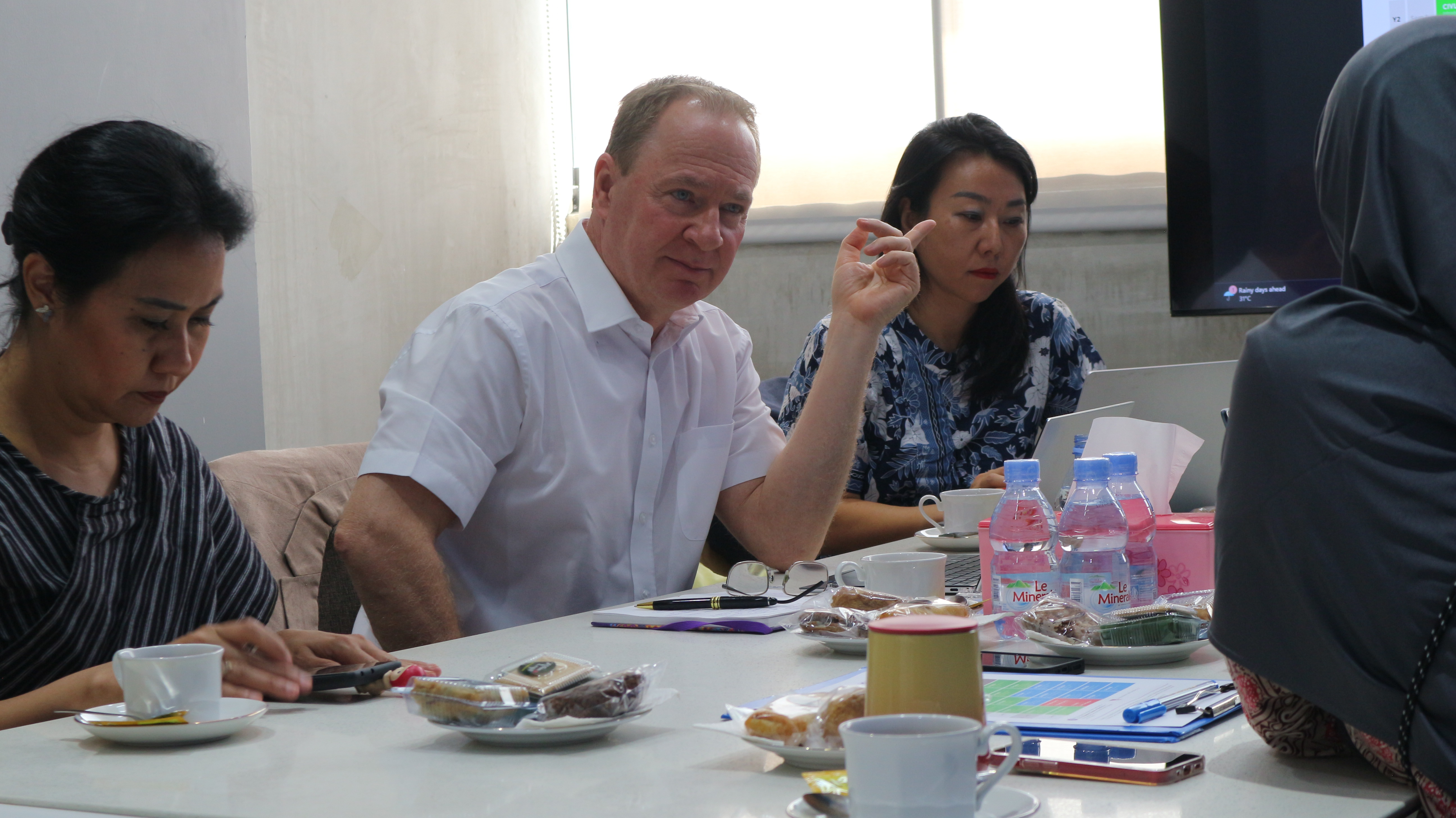The Faculty of Engineering, University of Indonesia (FTUI) held a strategic meeting with the University of Queensland (UQ) to monitor and evaluate the implementation of the International Class (KKI) program, particularly in the Civil and Environmental Engineering study programs (17/06). This meeting became a vital moment to respond to the trend of declining numbers of FTUI students continuing their studies at UQ through the dual degree scheme.
The discussion, which took place in the FTUI International Meeting Room, was attended by representatives from UQ, namely Ms. Angela Li (International Engagement Manager), and Professor Tom Baldock (Head, School of Civil Engineering). From FTUI, Dr Ayomi Dita Rarasati, S.T., M.T., PhD, who is the Head of the Civil and Environmental Engineering Department at FTUI, was present along with representatives from the FTUI International Office.
One of the main issues discussed was the decline in the participation of FTUI Civil Engineering students in the dual degree program at UQ. The primary factor identified was the high tuition fees in Brisbane, which are considered less competitive compared to partner universities such as QUT, Monash, and the University of Glasgow. Additionally, there is a trend among students to shift from a dual degree scheme to a single degree for various personal and academic reasons.
In response to this, the UQ through the Faculty of Engineering, Architecture and Information Technology (EAIT) proposed an expansion of the scope of cooperation, including opening opportunities for dual degrees for FTUI Environmental Engineering students in both civil and environmental engineering fields at UQ.
This meeting also discussed strategic initiatives to increase student interest, including plans for online guest lectures by UQ lecturers in late October or early November 2025. Furthermore, both institutions discussed the equivalence of courses, such as Environmental Phenomena, Fundamentals of Transportation Engineering, and Reinforced Concrete Design, as well as the potential for students to take classes like Environmental Fluid Mechanics at UQ.
“We see collaboration with FTUI as a very valuable long-term partnership. We are open to exploring more flexible and inclusive forms of cooperation, as well as supporting Indonesian students in gaining relevant and transformative global educational experiences,” said Prof. Tom Baldock.
Dr. Ayomi Dita Rarasati added, “This evaluation is important to ensure the sustainability of the KKI program and to ensure that the benefits of this international cooperation remain accessible to students. We hope today’s discussion becomes a concrete step in strengthening synergy with UQ and providing the best options for our students.”
As a follow-up step, FTUI through the International Office (IO FTUI) will send the latest academic guidebook to UQ for curriculum harmonization purposes. Both institutions also agreed to strengthen coordination regarding the student intake scheme, which is currently available in January and July each year.
This meeting reaffirms FTUI and UQ’s ongoing commitment to maintaining academic quality and expanding student access to relevant, competitive, and impactful international education.
***
Public Communication Office
Faculty of Engineering, University of Indonesia



